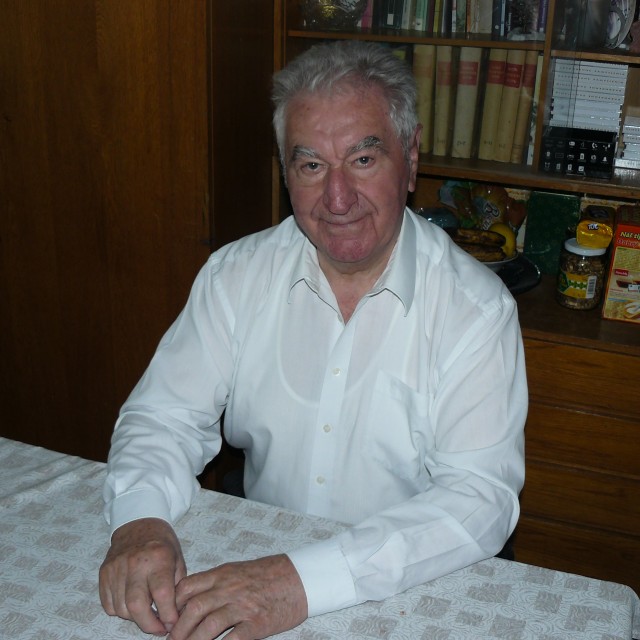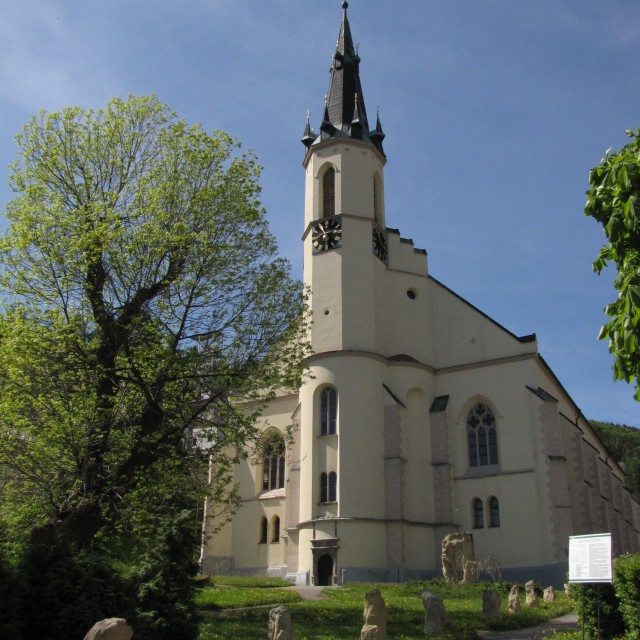
Anton Srholec
Anton Srholec was born on June 12, 1929 in Skalica in a poor small farmer family. As the only one of seven children he decided to study in high school. Since he desired to become a priest, he chose to study in a nearby Salesian high school in Šaštín. There in April 1950 he was affected by the statewide action of the communist regime against religious orders called Action “K” (K - in Slovak stands for – “kláštory”, meaning monasteries). After the violent takeover of the Salesian house in Šaštín he was transported along with his other classmates and priests to a concentration monastery in Podolínec. Later he was moved to work at the Priehrada mládeže (Youth Dam), what was supposed to be a re-education means of the ruling regime. Since this effort of the communist re-education of young students failed, finally they were released and Anton was able to graduate. Through the Salesian religious order, which had very close relationships with abroad, he got to a group of twenty-three priests and students, who in April 1951 attempted to escape to the West through river Morava. However, because of swollen watercourse they had to return and on their way back almost the whole group was detained by expectant border guards. At first Anton was taken to Bratislava Castle, then to the so-called prison U dvoch levov (At Two Lions) and he ended up in the Leopoldov prison, where he spent two months on remand. Secret trial with the whole group took place at the State Court in Bratislava in February 1952. Here the young man desiring only to study heard the verdict – twelve years of imprisonment. Within a short period of time he served in prisons of Ilava, Olomouc and Pankrác, but after all his final destination and “home” for almost a decade became Jáchymov. Anton struggled with unbearable working conditions; his health however, reached the level when he couldn’t move anymore. In spite of this he had to continue in work. In the “last moment” he was saved in 1960 by declaring the amnesty, which referred also to political prisoners. Anton returned to his parents, although he couldn’t find any job for a long time. He managed to work only as a non-qualified worker whilst he was still monitored by the State Security. In years 1965 – 1968 he worked in Ostrava - Vítkovice by blast furnace. He used his language skills that he acquired while in prison and in a short time he passed his state exams for English and German language. This helped him to acquire a job in a Research Institute of Poultry Industry. In 1969 he applied for permission to three months stay in Italy, where in September 1969 he began his studies at the University in Turin. Anton was supposed to be ordained a priest in 1970 in Turin; however, since he didn’t obtain permission of stay long enough, he had to leave to Rome, where he was ordained on May 17, 1970 by Pope Paul VI. Despite all that, Anton decided to return back home. Even though he was a priest, he couldn't work in the spiritual sphere. He employed himself as a sacristan in Blumentál church in Bratislava and later a dean arranged permission for him from the state administration to also help out in priestly activities. Unfortunately, his spiritual work wasn't convenient for the communist regime and thus he was moved to Pernek, Veľké Zálužie and to Záhorská Ves. Eventually, in 1985 he was deprived of the state consent as well and he could again work only as a worker and a storeman in Doprastav, where he stayed until his retirement in 1989. Anton perceived the fall of the communist regime in November 1989 and subsequent start of the democratic system very positively and as a person never broken by the communist regime he truly knows what freedom is. At present he devotes himself to charitable activities and is also active in various communities and social organisations.





